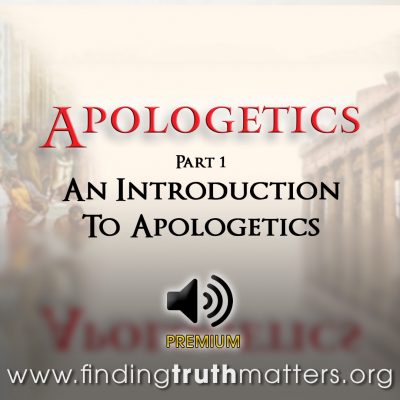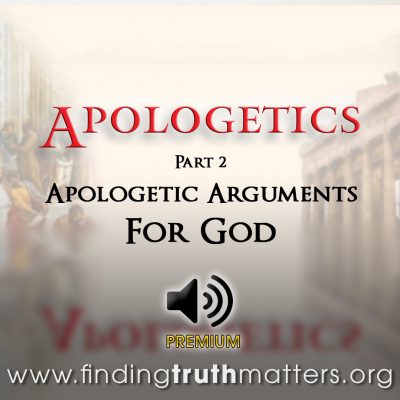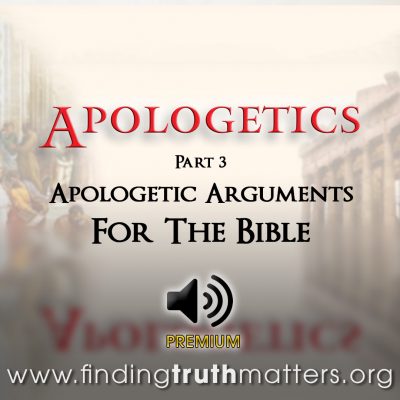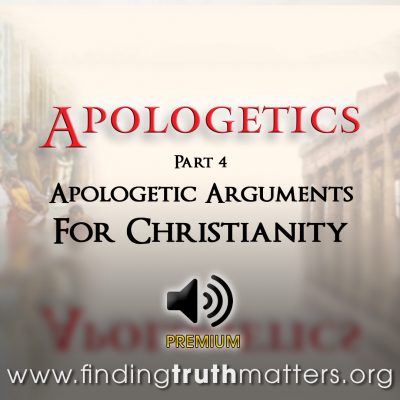home > articles > theology > A Theology of Sexuality > Who Told You You Were Naked?
A Theology of Sexuality
WHO TOLD YOU You WERE NAKED?
 There are some subjects that are just too difficult for many pastors to deal with which is why it is often better to bring in a Bible Teacher to do it. Bible teachers have less compunctions about addressing such topics because they rarely carry the weight of a congregation’s individual struggles or appreciate how the implications of dealing with such a sensitive topic can cause confusion, hurt, and even unintended condemnation. Maybe this is why I am being asked by other pastors to address some of these sensitive topics with their congregations — not necessarily as a teacher, but as a teacher who has been pastoring for several decades and thus understands the pastoral implications for a local church. Sexuality is one of these sensitive topics. In many pulpits, this topic is simply avoided. In many pews, the result of this pulpit malady is confusion and theological illiteracy. Even among Christian parents there is often a reluctance to teach their children about the theological aspects of sexuality and God’s design for intimacy. This silence from pulpits and dining tables leads Christian children to grow up assuming that God has nothing to say about this importance topic. But God does have something to say about sexuality and human desire, identity, and needs.
There are some subjects that are just too difficult for many pastors to deal with which is why it is often better to bring in a Bible Teacher to do it. Bible teachers have less compunctions about addressing such topics because they rarely carry the weight of a congregation’s individual struggles or appreciate how the implications of dealing with such a sensitive topic can cause confusion, hurt, and even unintended condemnation. Maybe this is why I am being asked by other pastors to address some of these sensitive topics with their congregations — not necessarily as a teacher, but as a teacher who has been pastoring for several decades and thus understands the pastoral implications for a local church. Sexuality is one of these sensitive topics. In many pulpits, this topic is simply avoided. In many pews, the result of this pulpit malady is confusion and theological illiteracy. Even among Christian parents there is often a reluctance to teach their children about the theological aspects of sexuality and God’s design for intimacy. This silence from pulpits and dining tables leads Christian children to grow up assuming that God has nothing to say about this importance topic. But God does have something to say about sexuality and human desire, identity, and needs.
GOD’S HEART FOR YOU IS REVEALED IN HIS WORD
I t might seem like God is against sex. After all, the Christian response to sex is better known for what it prohibits, than what it encourages. The Bible is peppered with prohibitive statements about sex in both the Old and New Testaments. The exclusive union of a man and a woman in a marriage covenant was always intended by God to be the primary relationship that would produce human sexual flourishing. But this reveals God’s benevolent heart for mankind that He would create man and woman with a capacity unknown to any other creature – the ability to enjoy sexual satisfaction which is not merely driven by a base desire to reproduce — but to experience and experience physical love. It is not just that God wants what is good for people; it is that He wants mankind to enjoy what He has designed as best.
t might seem like God is against sex. After all, the Christian response to sex is better known for what it prohibits, than what it encourages. The Bible is peppered with prohibitive statements about sex in both the Old and New Testaments. The exclusive union of a man and a woman in a marriage covenant was always intended by God to be the primary relationship that would produce human sexual flourishing. But this reveals God’s benevolent heart for mankind that He would create man and woman with a capacity unknown to any other creature – the ability to enjoy sexual satisfaction which is not merely driven by a base desire to reproduce — but to experience and experience physical love. It is not just that God wants what is good for people; it is that He wants mankind to enjoy what He has designed as best.
The thief comes only to steal and kill and destroy. I came that they may have life and have it abundantly.
John 10:10
God’s best sometimes means saying “No” to some available pleasures and desires in order to be able to say “Yes” for that which He decrees to be our best.
TERMS AND DEFINITIONS
Normally a glossary appears at the back of a document. I find it helpful though to define terms with their definitions before introducing them so that we minimise the risk of misunderstanding.
| Broken | The result of something designed for a particular purpose being misused for a destructive purpose. |
| Hurt | Momentary pain which may have long-term consequences. Includes: physical, emotional, psychological forms of pain. Can be negative; can be beneficial. |
| Harm | An injurious action which has long-term, negative, consequences. Includes: physical, emotional, psychological, and spiritual forms of injury. |
| Evil | When something designed for good is abused to cause harm. |
This last word, evil, is used in a warning from God to Adam and Eve. It’s worth noting that God is clearly familiar with the concept of evil – without ever having committed it.
And the LORD God commanded the man, saying, “You may surely eat of every tree of the garden, but of the tree of the knowledge of good and evil you shall not eat, for in the day that you eat of it you shall surely die.”
Genesis 2:16-17
After Yahweh gave this warning to Adam, the next we hear from Him reveals something profound about the nature of human beings.
¶ Then the LORD God said, “It is not good that the man should be alone; I will make him a (helper fit for him) partner corresponding to him.”
Genesis 2:18 (My translation)

From this seminal declaration we see that God has designed mankind with: (i) Desires; (ii) Identity; and, (iii) Needs.
So the LORD God caused a deep sleep to fall upon the man, and while he slept took one of his ribs and closed up its place with flesh. And the rib that the LORD God had taken from the man He made into a woman and brought her to the man. Then the man said, “This at last is bone of my bones and flesh of my flesh; she shall be called Woman, because she was taken out of Man.” ¶ Therefore a man shall leave his father and his mother and hold fast to his wife, and they shall become one flesh. And the man and his wife were both naked and were not ashamed.
Genesis 2:21-25
From this passage we see that mankind was designed and created with –
- Sexual desires
- Identity
- A two-fold need: to love and to be loved

TWO VERY DIFFERENT POINTS OF VIEW
In the Garden of Eden we see two very different points of view when it comes to human desires, human identity, and the nature of love. These two opposing views maybe identified as: the viewpoint of the World, versus, the viewpoint of the Word. The viewpoint of the World may be presented as-

This viewpoint of human sexuality has led to millions of people in recent times into emptiness, frustration, and brokenness. Christopher Yuan is a self-confessed victim of this worldview. He was living an openly promiscuous lifestyle. He became well-known in the Gay-Bar scene, and, as he thought, was well liked. But when his world came crashing down, all those lovers and friends immediately abandoned him. It was then that he realised just how empty and broken he was. While serving a six year jail sentence he picked up a discarded Gideons’ bible out of a prison trash can. He says, “I needed something to do or something to read – so I took it back to my cell and began reading it.” What he read changed his life. He searched the words of Jesus in the Bible and found nothing to justify his same-sex attraction. As he became more and more persuaded by the truthfulness of the Bible he realised that to follow Christ he would have to deny his same-sex attraction. “I had believed the lie”, Christopher says, “that my same-sex attraction was my identity.” While in prison, Christopher enrolled in Bible School with the Moody Bible Institute. After being released from prison, Christopher completed further studies and is, today, a professor of Bible interpretation at Moody. He describes himself as “a celibate, same-sex attracted, man.” You can watch his story at https://youtu.be/l_pQ7qafQcA. His latest book is Holy Sexuality And The Gospel.

Christopher Yuan is not the only one with such a story. On the other side of the Atlantic, Sam Allberry’s story bears some similarities to Christopher’s. He is now an Anglican minister, who, similarly to Christopher Yuan, describes himself as a celibate, same-sex attracted, man. Sam Allberry is now the U.K. director of Ravi Zacharias Ministries International. In Dr. Nancy Pearcey’s book, Love Thy Body, she documents dozens of anecdotal support for the claim that the worldly sexual viewpoint has led to brokenness and harm for its practitioners.
In contrast to the viewpoint of the world, the viewpoint from the Word of God regards sexuality being divinely purposed. Biblically, God has designed sex as having 7 purposes:
- Love (giving of oneself);
- Pleasure;
- Unity;
- Procreation;
- Comfort;
- Reassurance/Confidence;
- Healing (Body & Soul; relationally)
The viewpoint of the Word has led millions of people into satisfaction, happiness, and wholeness. For example, University of Toronto post-doctoral researcher, Dr. Anik Debrot, and her colleagues, found that for who were married, their rate of sexual satisfaction compared with those who were not, and were sexually active, was “the size of the difference in well-being for people having sex once a week, compared with those having sex less than once a month, was greater than the size of the difference in well-being for those making US$75,000 compared with US$25,000 a year” (https://www.psychologytoday.com/au/blog/fulfillment-any-age/201707/the-secret-reason-why-sex-is-so-crucial-in-relationships).
WHAT JESUS TAUGHT
Some people assert that Jesus Christ made no statement about sexuality, therefore, the Christian’s claim that God has designed marriage between one man with one woman for life is not what Jesus taught. This assertion is false. Jesus did speak to the issue of sexuality. In Matthew 15:19-20 He said that “sexual immorality” would “defile” a person –
“For out of the heart come evil thoughts, murder, adultery, sexual immorality, theft, false witness, slander. These are what defile a person. But to eat with unwashed hands does not defile anyone.”
Matthew 15:19-20
No one in His original audience needed to query Him about what He meant by sexual immorality because every Jew knew exactly what this meant as it was detailed in the Law of Moses (Leviticus 18:6-20). Not only did Jesus reinforce and reiterate this teaching, the New Testament were consistent in their support of it as well. The writer to the Hebrews does so – and gives a sombre warning for those who ignored God’s design and six-fold intention for sex-
Let marriage be held in honor among all, and let the marriage bed be undefiled, for God will judge the sexually immoral and adulterous.
Hebrews 13:4
Jesus Christ taught that the Father of Creation designed and purposed sex as a good thing, but that its misuse — sexual immorality — leads to brokenness. We should not confuse ‘good’ with ‘best’. Christ also declared the means by which God intended for people to sexually flourish.
¶ And Pharisees came up to Him and tested Him by asking, “Is it lawful to divorce one’s wife for any cause?”
Matthew 19:3
Jesus response to the Pharisees was to refer to Genesis 2 from which He gave God’s perspective on human flourishing.
He answered, “Have you not read that He who created them from the beginning made them male and female, and said, ‘Therefore a man shall leave his father and his mother and hold fast to his wife, and the two shall become one flesh’? So they are no longer two but one flesh. What therefore God has joined together, let not man separate.”
Matthew 19:4-6
Immediately after God created mankind, He instituted marriage. This reinforced His revelation that mankind was created in the image of God. God, the eternal Father, Son, and Holy Spirit, existed from all eternity in a perfect community of infinite love. The Trinity is One God comprised of three distinct co-equal, co-eternal, co-existent, persons. Marriage was designed by God to reveal to mankind His nature and character. Thus, marriage, as the union of two sexually distinct people (male and female) with God, reflects God’s triune nature. The trinity is a community of covenant love between the Father, Son and Holy Spirit. Marriage is not just an agreement, it is a covenant between a man and woman with God. The writer of Proverbs states that the wife who commits adultery is breaching the covenant that she has – not just with her husband, but with God.
who forsakes the companion of her youth
and forgets the covenant of her God;
Proverbs 2:17

HOPE FOR THE BROKEN
Christian theology doesn’t merely offer sexual prohibitions or the ideal of marriage as the exclusive context for sexuality, it also offers hope to the hurting and restoration for the broken. This theological truth is beautifully presented in Christ’s interaction with “the woman who was a sinner” in Luke 7.
And behold, a woman of the city, who was a sinner, when she learned that He was reclining at table in the Pharisee’s house, brought an alabaster flask of ointment, and standing behind Him at His feet, weeping, she began to wet His feet with her tears and wiped them with the hair of her head and kissed his feet and anointed them with the ointment.
Luke 7:37-38
The host of this dinner, Simon the pharisee, looks upon the woman with disgust. In response, Jesus tells the story of the two debtors who had their debts forgiven by their moneylender. He asks Simon, “Now which of them will love him more?” (Luke 7:42) Simon answered, “The one, I suppose, for whom he cancelled the larger debt.” Jesus commended his answer.
Then turning toward the woman He said to Simon, “Do you see this woman? I entered your house; you gave me no water for My feet, but she has wet My feet with her tears and wiped them with her hair. You gave Me no kiss, but from the time I came in she has not ceased to kiss My feet. You did not anoint My head with oil, but she has anointed My feet with ointment.
Luke 7:44-46
“Do you see this woman?” Jesus asked Simon. No, he did not. He instead only saw “a woman who was a sinner” — but he did not see this woman. Remarkably this exchange between Jesus and the woman took place as Jesus was “turning toward the woman”. Luke 7:47 is spoken to Simon while looking at the woman who had earned her wealth as a prostitute, and in what is arguably one of the most poignant verses in the entire Bible, Jesus now looking and addressing the woman declares Luke 7:48.
Therefore I tell you, her sins, which are many, are forgiven—for she loved much. But he who is forgiven little, loves little.”
Luke 7:47
And He said to her, “Your sins are forgiven.”
Luke 7:48
No matter what lifestyle someone has led, whenever they turn to Christ seeking His forgiveness, they are assured of the promise of God’s cleansing forgiveness being granted to them.
If we confess our sins, He is faithful and just to forgive us our sins and to cleanse us from all unrighteousness.
First John 1:9
When mankind was originally created, God gifted Adam with the best possible life — but rejected it and foolishly settled for something immeasurably less — based on a lie. In the perfect Paradise, Adam and Eve were clothed with a type of radiant glory which is later described poetically by Ezekiel as being like “every precious stone”.
You were in Eden, the garden of God;
every precious stone was your covering,
sardius, topaz, and diamond,
beryl, onyx, and jasper,
sapphire, emerald, and carbuncle;
and crafted in gold were your settings
and your engravings.
On the day that you were created
they were prepared.
Ezekiel 28:13
After the greatest con job in human history was pulled off by the devil, God came looking for the now hiding Adam and asked him a telling question.
He said, “Who told you that you were naked? Have you eaten of the tree of which I commanded you not to eat?”
Genesis 3:11
The answer to this piercing divine question was not the devil. Adam needed no-one to tell him that the glorious covering he once enjoyed as a partaker in God’s glory, was now gone. Adam was now broken and brokenness brings with it an awkward self-awareness of its damage. Today there are millions of people who are similarly broken, and apart from those who live in the delusion of self-deception, they know it. But what they don’t know is that God’s best is still available to them if they would only turn and ask.
Andrew Corbett.
-
Sale!

5 Things We Need To Do To Break Our Church’s 200 Barrier, Premium Audio
Original price was: $1.75.$0.95Current price is: $0.95. -
Sale!

A Morning With Izaak Walton – The Compleat Man, Premium Audio
Original price was: $1.75.$1.25Current price is: $1.25. -
Sale!

Apologetics Part 1 – Introduction To Apologetics, Premium Audio
Original price was: $1.75.$0.95Current price is: $0.95. -
Sale!

Apologetics Part 2 – The Apologetic Arguments For God, Premium Audio
Original price was: $1.75.$0.95Current price is: $0.95. -
Sale!

Apologetics Part 3 – The Apologetic Arguments For The Bible, Premium Audio
Original price was: $1.75.$0.95Current price is: $0.95. -
Sale!

Apologetics Part 4 – The Apologetic Arguments For Christianity, Premium Audio
Original price was: $1.75.$0.95Current price is: $0.95.






































0 Comments